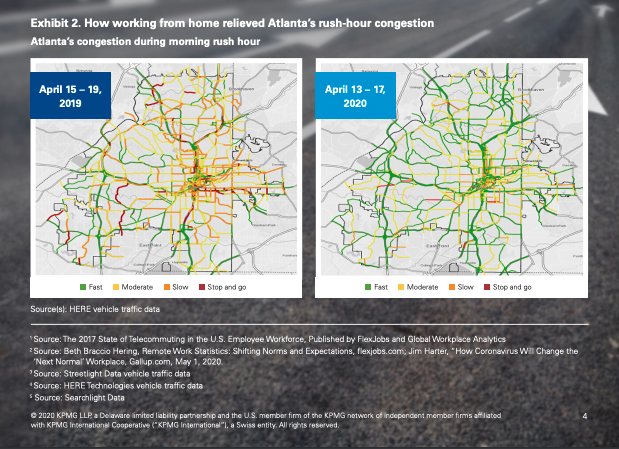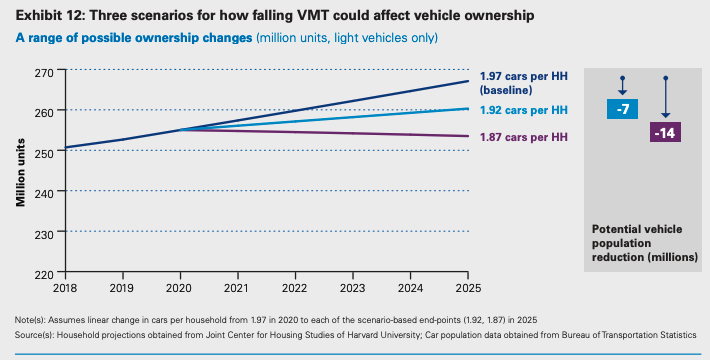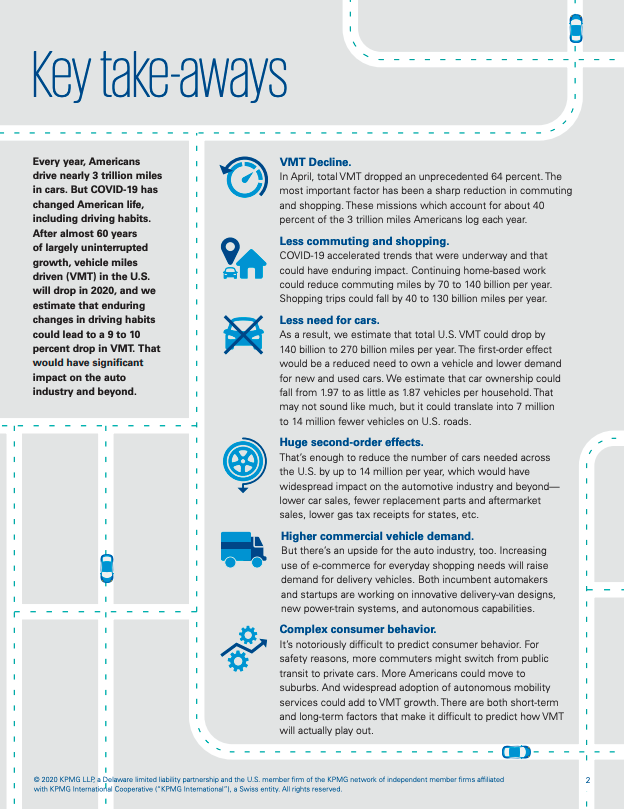‘Work-From-Home’ Will Reduce US Driving By 270 Billion Miles Per Year, KPMG Finds
Tyler Durden
Fri, 07/17/2020 – 19:45
With tens of millions of Americans out of work, people fleeing cities for rural communities, others working from home, online shopping flourishing, and the virus remerging in many states forcing governors to pause or reverse reopenings, consultancy firm KPMG International has some bad news for those betting the economy is going to “rocket ship” recovery as President Trump boasts about at press conferences and on Twitter. The consultancy firm warns “social-distancing measures” will “dramatically cut the amount of miles Americans travel by car” (fewer miles driven is terrible news for an economy driven by consumer spending).
The effects of COVID-19 will be felt for years. The response to the virus has accelerated powerful behavioral changes that will continue to shape how Americans use automobiles. We believe the changes in commuting and e-commerce are here to stay and that the combined effect of reduced commuting and shopping journeys could be as much as 270 billion fewer vehicle miles traveled (VMT) each year in the US. -KPMG
At the height of lockdowns in April, Americans drove 64% fewer miles, “an unprecedented decline in travel,” noted Bloomberg. KPMG estimates 10% permanent reduction of the almost 3 trillion miles driven each and year, and vehicle ownership will slump.
“People buy a car to get to and from work and because shopping is a very important part of their lives,” Gary Silberg, head of KPMG’s global automotive practice, told Bloomberg in an interview. “If two of the primary missions that the American public buys a car for are going to reduce in demand, we know that’s going to have an adverse impact on auto sales. It’s just like gravity.”
The report states, the new normal could be as many as “14 million fewer cars” on America’s highways. This is good for anyone who still has a job and commutes – rush our in some metros areas have already been eliminated.
However, there’s always a consequence – that is, automakers, retailers, and industries directly or indirectly related to transportation will take a massive hit for the next several years.
Falling VMT would also affect used-car sales and aftermarket parts and service: less driving also means less wear and tear on vehicles, as well as a decline in traffic accidents, cutting into the lucrative collision parts business. Auto aftermarket suppliers will likely see a significant falloff in demand for replacement parts and maintenance services. – KPMG
KPMG outlines three scenarios of falling VMT will result in declining car ownership through 2025.
The key takeaway of the report is that change in habits and jobs along with an economic downturn could result in few miles driven by Americans for many years, indicating a V-shaped recovery in the overall economy is certainly not in the cards for this year or next.
KPMG’s conclusion: “COVID-19 is the defining event of 2020–and will continue to shape society, politics, and business for years to come.”
It’s all downhill from here…



